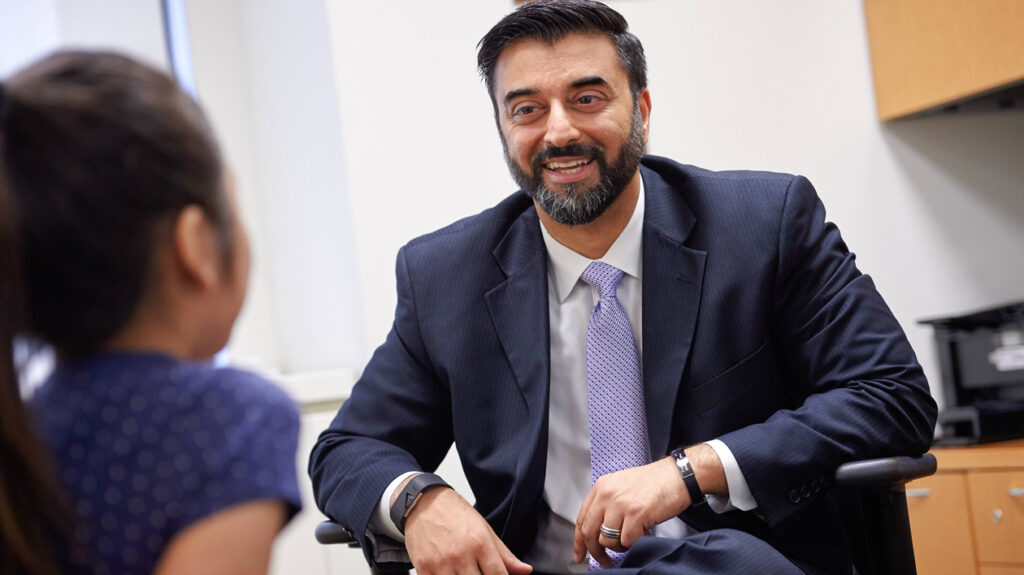For most parents, having a child with Obsessive Compulsive Disorder (OCD) can be a traumatic experience. When you’re dealing with behaviors and thoughts your child has difficulty controlling and understanding, it can feel overwhelming. Having the right therapist for your child is essential in getting them the help they need to cope with their condition. A pediatric psychiatrist specializes in OCD treatment, helping children throughout their development. Read on to learn more about what goes into pediatric OCD therapy and how to find the perfect therapist for your child.
Contents
Who Is a Pediatric OCD Therapist?

If your child has been diagnosed with OCD, you may be wondering who is the best person to help them. The short answer is a pediatric OCD therapist. But what does that mean, exactly?
A pediatric OCD therapist is a mental health professional who specializes in treating children and adolescents with OCD. They understand the unique challenges that come with this disorder and are trained to provide evidence-based treatment.
The most important thing to look for in a pediatric OCD therapist is experience and expertise. Make sure they have extensive knowledge of OCD and its various treatments. Ideally, they should also be certified in Cognitive Behavioral Therapy (CBT), which is the gold standard treatment for OCD.
When meeting with potential therapists, ask about their approach to treatment and whether they think CBT is right for your child. It’s also important to make sure they have a good rapport with your child and that you feel comfortable communicating with them.
Types of Treatment Offered By Pediatric OCD Therapists
A pediatric OCD therapist can help a child in many ways. Some of the areas where they help are helping the child to understand what OCD is, exploring the child’s interests, and helping them to cope with their symptoms. They will also help a child learn how to manage their thoughts and behaviors related to OCD to reduce stress and anxiety. The therapist can also work with parents and other caregivers to create an environment that is supportive of the child’s recovery.
There are various tools and techniques used by pediatric OCD therapists.
- Cognitive Behavioral Therapy (CBT) is one of the most common therapies for treating OCD in children. In CBT, the therapist helps the child to become aware of their thoughts, identify any unhelpful thinking patterns, and develop strategies to challenge these patterns.
- Exposure Response Prevention (ERP) is another type of therapy that focuses on helping the child confront their fears and anxieties without acting on them. This can help them learn how to manage their symptoms safely.
- Other treatments include relaxation techniques such as deep breathing exercises and mindfulness meditation, which can help reduce stress levels. Additionally, some OCD therapists may also use medications if necessary.
Overall, a pediatric OCD therapist is a great resource for children who are struggling with this condition. They will provide the help and support needed to develop positive coping skills and manage their symptoms.
When To Consider a Pediatric OCD Therapist?

There are a few things to consider when thinking about whether or not to see a pediatric OCD therapist. The first is the severity of your child’s symptoms. If they are mild, you may be able to manage them on your own or with the help of a guidance counselor or school psychologist. However, if your child’s symptoms are more severe, it may be worth considering seeing a therapist specializing in OCD.
Another thing to consider is how well your child is functioning in other areas of life. If their OCD is interfering with school, friendships, or activities they enjoy, it may be time to seek professional help. Therapists can teach children coping skills and help them learn how to better manage their symptoms.
Finally, it’s important to consider how you as a parent are feeling about the situation. If you’re struggling to cope with your child’s OCD or feel like you need support, some therapists specialize in helping parents as well. Don’t hesitate to reach out for help if you need it.
Benefits of Visiting a Pediatric OCD Therapist
There are many benefits to visiting a pediatric OCD therapist. One of the most important benefits is that it can help your child learn how to cope with OCD. Many children who suffer from OCD do not have the tools they need to deal with their disorder. A therapist can teach your child healthy coping mechanisms and provide support during difficult times.
- Another benefit of visiting a pediatric OCD therapist is that they can help your family better understand the disorder. Many families are not familiar with OCD and do not know how to best support their children. A therapist can educate you about the disorder and help you develop a plan to support your child at home.
- Another benefit is that a therapist can help your child learn how to manage their anxiety and stress levels. OCD can cause intense anxiety, which may lead to problems in school or social situations. A therapist can assist your child in identifying triggers and learning techniques to reduce their symptoms.
- Finally, visiting a pediatric OCD therapist can also improve family dynamics. OCD often puts a strain on relationships within the family. A therapist can help each family member understand their role in helping the child cope with their disorder. This can lead to improved communication and stronger relationships between all family members.
How To Find a Pediatric OCD Therapist?

It can be difficult to find a pediatric OCD therapist because there are not many therapists who specialize in treating this age group. Here are some tips for finding a specialist:
- Ask your child’s doctor for recommendations. Your child’s doctor may know of therapists in your area who have experience treating children with OCD.
- Check with your local mental health association or search online directories. These resources can help you find therapists who specialize in treating OCD in children and adolescents.
- Once you have a few names, call the therapists and ask about their experience treating pediatric OCD patients. You must find a therapist who has experience working with children, as they will be better equipped to understand and treat your child’s unique condition.
- Don’t be afraid to ask for a second opinion if you feel like the therapist is not the right fit for your child. Finding a good match is important, as it can make all the difference in terms of successful treatment.
- Make sure the therapist is comfortable with your child’s treatment goals and has a plan in place for reaching them. You must find a therapist who understands your child’s needs and can help them reach their desired outcome.
Conclusion
In conclusion, pediatric OCD therapists provide invaluable care to children and adolescents who are struggling with this disorder. Parents need to seek out a qualified therapist who can provide the best possible treatment for their child. With the right help, these young people can learn to manage their symptoms and live happier healthier lives. There are numerous resources available to help parents find an experienced pediatric OCD therapist that meets their child’s needs. Finally, it is important that once a therapist is chosen, the family works together to ensure the child’s successful recovery.
For more information and guidance, please contact OCDMantra. OCD is a mental health disorder characterized by obsessions and compulsions. If you have any queries regarding OCD treatment, ERP therapy experienced therapists at OCDMantra can help: Book a trial OCD therapy session.


